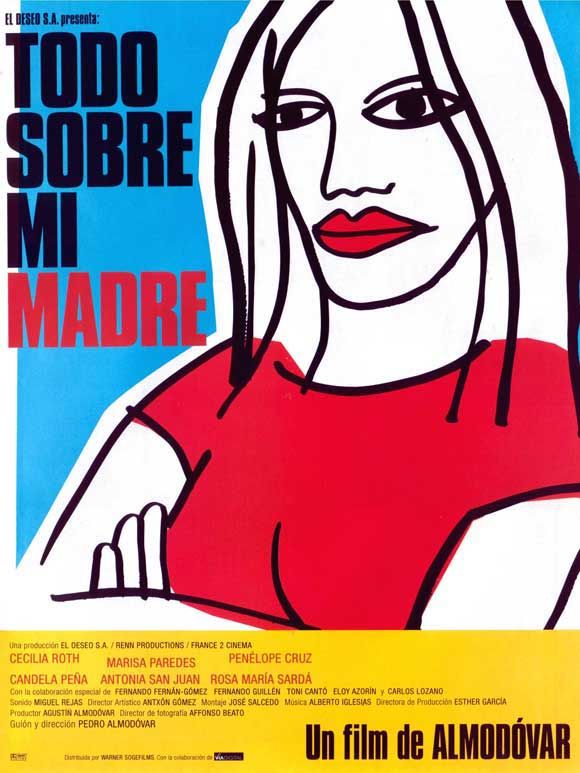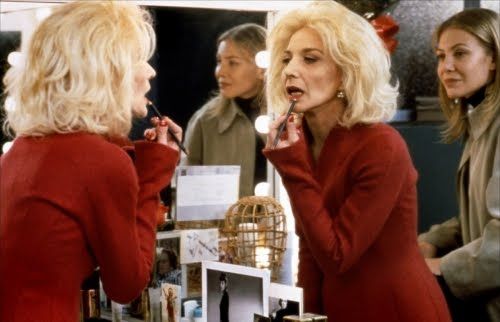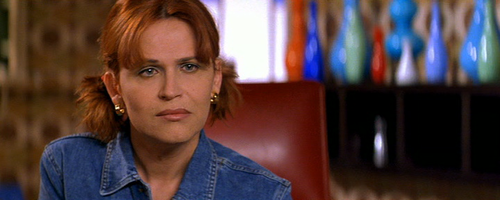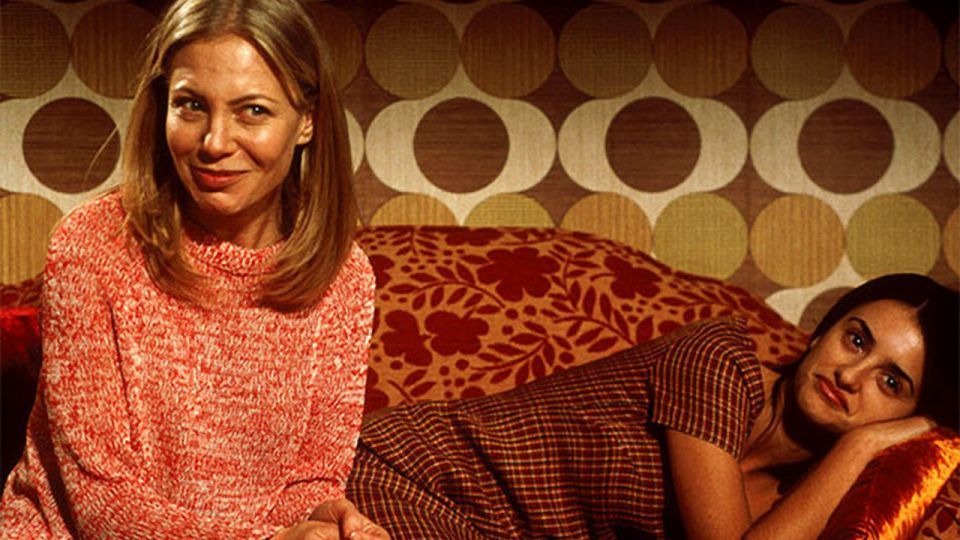All
About My Mother
1999
Director: Pedro Almodovar
Starring: Cecilia Roth, Antonia San
Juan, Penelope Cruz
Pedro
Almodovar is a director whom I have heard a great deal about, but never
actually seen a single one of their films.
That’s a little strange, I know, but All About My Mother was
my first Almodovar experience. Quick
version of the review? I was entranced,
I was moved, and, well, I loved it.
Manuela
(Roth) is a single mother in her thirties, doting on her 18 year old son
Esteban, an aspiring writer. When
Esteban is killed by a car when crossing the road, Manuela’s grief is
extreme. She moves to Barcelona and
reconnects with an old friend, transgender/transvestite prostitute Agrado (San
Juan), while making new friends in the form of nun Rosa (Cruz) and famous
actress Huma (Marisa Paredes). All of
these women have their own issues, their own stories, their own tragedies, but
fate seems to insist on bringing them all together to deal with their problems.
In
this film of women, men who dress like women, and men who are women, there’s a
distinct feeling of kinswomanship and found families. I cannot now remember if Manuela’s parents
were alive or not, but she constantly manages to surround herself with those
who become family. At several points in
the film, friends of hers refer to Manuela as their sister, and she is easily
the head of the family, the mother and sister all rolled into one, looking out
for everyone around her even if she just met them. I love the sense of camaraderie and general
kindness in this film, a feeling that starts right off the bat with Manuela
reconnecting with trannie hooker Agrado.
Tolerance and love of all is a major theme, and it’s incredibly
uplifting. Despite the fact that there
are several tragedies throughout the story, this found family cares deeply for
its own and truly looks out for each other.
There is honest to goodness heart here.
That
heart goes a long way towards getting through the pretty awful stuff that
happens to the characters. There is real
and horrible tragedy here. When we open
the film by having Manuela lose her only son who she desperately loves, you
know you’re not exactly in for a laugh-fest.
And yet, despite Manuela’s grief and then the subsequent knocks thrown
her way, Manuela and the other women in the film deal very graciously with it,
with the ultimate attitude that they will overcome. For all the melodrama and tragedies
throughout the movie, I could not help but feel uplifted at the end. All About My Mother made me cry, but
in a cathartic way. It was a refreshing
cry, a cry that ended with a brighter feeling about tomorrow. These women will not give up, despite the
obstacles thrown in their way. There is
a sense of optimism here, of joy triumphing over despair.
In
a very strange way, the sense of kinswomanship is also underscored by the sheer
physical similarities between most of the characters in the film. Manuela is our main character, so I’ll start
the chain with her. She is blond, with a
bit of a thin, long face. Also with a
thin, long face very similar to Manuela is Huma, but Huma instead has shocking
red hair. Agrado also has shocking red
hair. And also with a long, thin face is
Rosa’s mother, who becomes increasingly important in the second half of the
film, only Rosa’s mother is blond and older; imagine Manuela with about fifteen
or twenty more years tacked on. Even
peripheral character Lola who serves more as motivation to drive the actions of
others rather than being in the film herself shares some physical
characteristics. In fact, the character
who stands out the most from everyone else is Rosa (Penelope Cruz); given how
different she looks with the rest of the other females, I can’t help but wonder
if her fate is somehow sealed. I cannot
imagine that the physical similarities between all these women is a
coincidence; instead, Almodovar is really underlining the familial nature of
the relationship between the women by even implying they share a hint of
genetic material.
Almodovar’s
cinematography is a lovely blend of standard photographic techniques and
modern, unexpected shot composition. In
the scene where Esteban is killed, we follow his fall with a first-person shot,
watching his vision become blurred, hearing, as from a great distance, the cry
of his mother. The subsequent shot of
Manuela in the emergency room is at a distance, with a very standard, cold,
clinical composition. The blend of
ultra-modern and traditional seems to be a trend I’m noticing increasingly in
films from the nineties and early 2000s, and it signifies a general shift
forward to the next era of movies.
Almodovar
also made me beautifully aware of prints and textiles. Set mostly in Barcelona, Almodovar lingers
his camera on old patterned mosaic tiles time and time again. The whites, blues, and reds of these are
gorgeous. Vivid paint splashes the décor
of the Spanish restaurants. In the
apartments and homes of our main characters, Almodovar does not shy away from
wallpaper with very graphic designs; in some shots, the designs completely
overwhelm the people themselves. It made
me aware that while many directors use color well and with great symbolism,
rarely have I seen the director who uses prints. I’m used to seeing color but not
patterns. I enjoyed the change of pace;
instead of seeming gaudy, it breathes a sense of life and vibrancy into the
film. This befits a film where a trannie
hooker delivers one of the most heartfelt speeches about being genuine while
she lists off how many surgeries she’s had to look the way she does.
I
got very caught up in this film. Right
from the get go, when the title, “All About My Mother,” is revealed to be a
play on the classic All About Eve, I was hooked, whirled into Almodovar’s world of
love. While most of the characters
engage in acting or performing at some point of the film, the emotions are
real. Almodovar manages to deliver a
gut-wrenching story told with a sense of optimism and joy. I shall eagerly be turning to his other works
with a greater sense of anticipation.
Arbitrary
Rating: 9/10.



